#Fred Moten
Photo










“The painting is a mirror. Absorption is self-absorption.”
from In the Break: Aesthetics of the Black Radical Tradition by Fred Moten
from top left to bottom right: Adrienne Raquel, Erik Carter, Lucie Fox, Adrienne Raquel, Adrienne Raquel, Adrienne Raquel, Mark Elzey, Kennedi Carter, Marcus Klinko
667 notes
·
View notes
Text
"And now there's all this talk in university about “diversity, equity, and inclusion.” And we know what people mean when they say “inclusion.” Or we know some of what they sometimes mean. And sometimes some of that is really good. But I often wish that we thought about using, even though it's more unwieldy, the term “non-exclusion.” Because it's kind of like, I don't want to be excluded from this particular set of resources, from this particular set of chances, from this particular set of responsibilities. But I don't want to be included in the already existing form of those things. When I come in, as Anna Julia Cooper says, and Paula Giddings echoes, where and when I enter, it's got to change. It's not enough for you to welcome me into your thing. You have to be open to the possibility and the fact that when we get there, it's going to be different. It's got to be different. It can't simply be the same old structure that used to exclude us. And this has to be something that you can be open to. And ideally it would be something that you would desire."
-Fred Moten
1K notes
·
View notes
Text
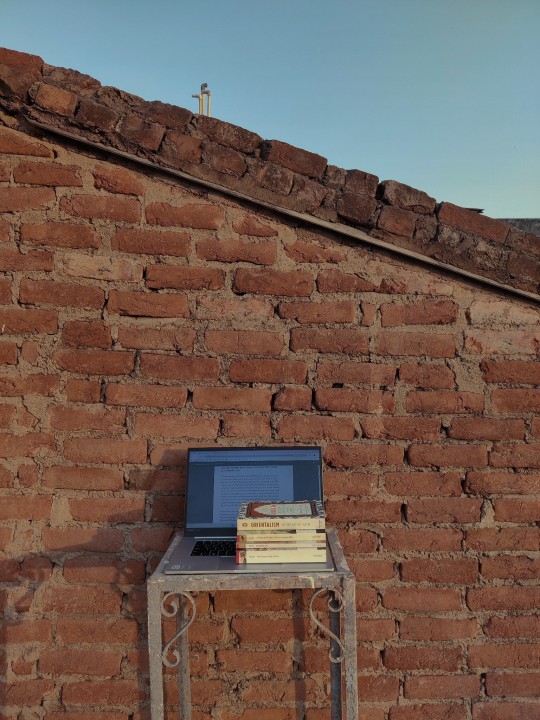



— red blue dilapidated study space — ⋆˙
#orientalism#edward said#symposium#plato#a portrait of the artist as a young man#james joyce#the lives of the artists#giorgio vasari#the undercommons#stefano harney#fred moten#critical theory#studyblr#booklr#studyinspo#study space#dark academia#light academia#dark academia aesthetic#light academia aesthetic#vintage#study blog#book blog#reading list#mine
34 notes
·
View notes
Photo

Fred Moten, Sound in Florescence: Cecil Taylor’s Floating Garden
399 notes
·
View notes
Text
“We think of colonial institutions as, for instance, banks – the East India Company or various economic and governmental structures that are left in place. But what if it turns out that the very figure of the subject is itself a colonial institution? What if it turns out that representation or inclusion are also colonial institutions that converge with the figure of the settler?”
-Fred Moten, in interview
32 notes
·
View notes
Quote
See, in spite of all this omnipresent law enforcement, because we want to hear and taste and smell and feel, we can't go very long without trying to talk about some art.
Fred Moten, The Universal Machine
101 notes
·
View notes
Text
I think that “trans” is one word for it that is not just one word among others. You know what I’m saying? I have all these shorthand ways of putting shit that I steal from other people, but what I mean is that there are other words that one could use, but none of those words is replaceable. Not only are they not replaceable, they are not substitutable. . . . I’m beginning to think that these things [blackness and transness] converge in an irreducible way. They can’t be thought separately from one another, because both manifest themselves in regard to ritual practice. I don’t think about blackness as an identity. I think about blackness as a ritual practice, and I feel like I should think this about transness too.
Fred Moten, "All Terror, All Beauty."
[emphasis added]
#FRED MOTEN MY BELOVED!!!!!!!!!!!!!!!!!!!!!!!!!!!!!!!!!!!!!!!#fred moten#readings#trans#blackness#black studies#gender#mine
84 notes
·
View notes
Text
the subversive intellectual enjoys the ride and wants it to be faster and wilder; she does not want a room of his or her own, she wants to be in the world, in the world with others and making the world anew.”
- Fred Moten
79 notes
·
View notes
Photo
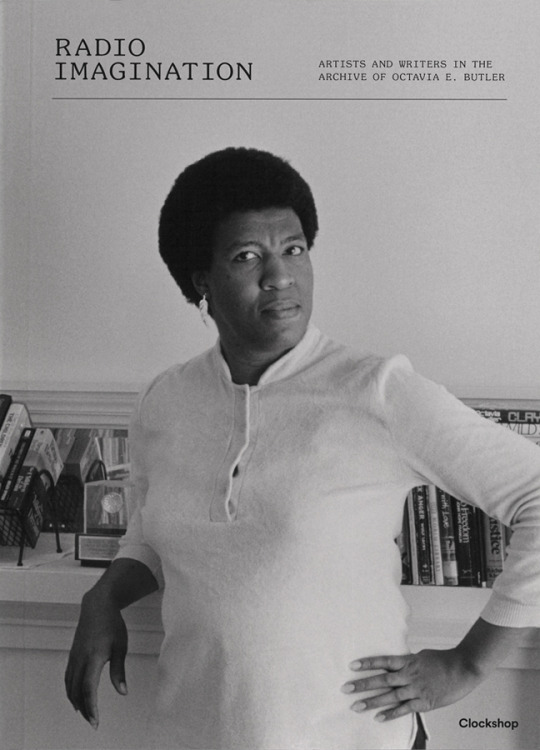

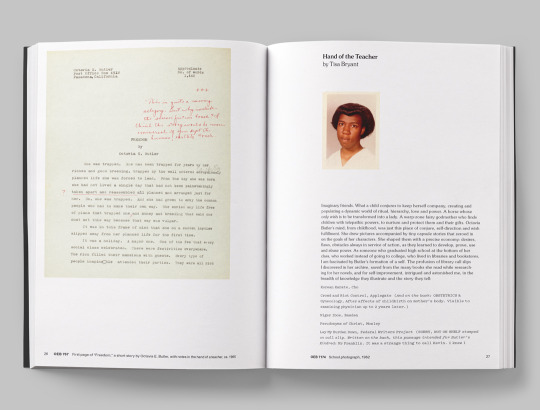
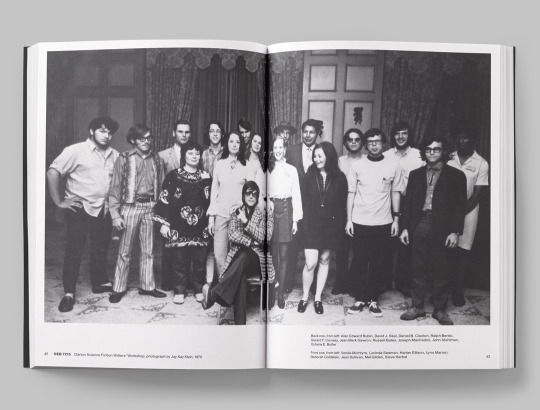
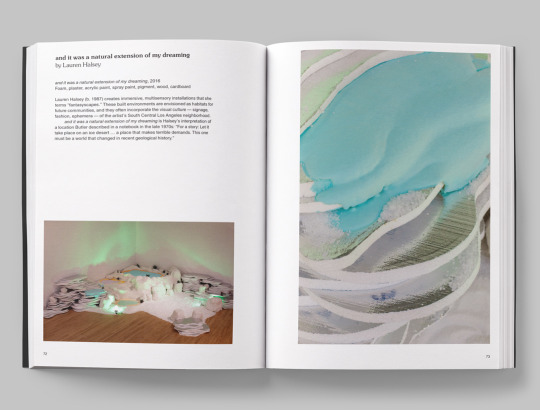

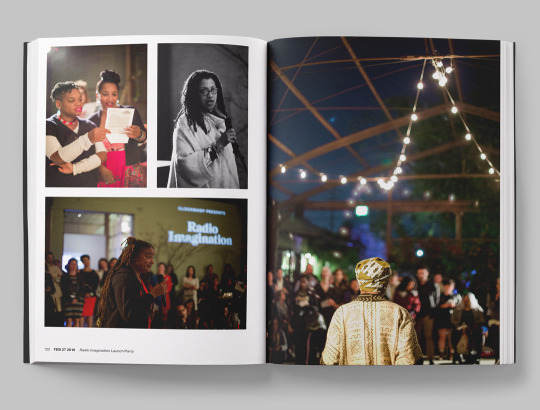

Radio Imagination: Artists and Writers in the Archive of Octavia E. Butler, Edited by Janet Duckworth and Savannah Wood, Foreword by Julia Meltzer, Clockshop, Los Angeles, CA, 2018. Contributions by Tisa Bryant, Lynell George, Robin Coste Lewis, and Fred Moten, and artworks by Laylah Ali, Malik Gaines and Alexandro Segade, Lauren Halsey, Mendi + Keith Obadike, and Connie Samaras
#graphic design#art#photography#book#cover#book cover#octavia e. butler#janet duckworth#savannah wood#julia meltzer#tisa bryant#lynell george#robin coste lewis#fred moten#laylah ali#malik gaines#alexandro segade#lauren halsey#mendi + keith obadike#connie samaras#clockshop#2010s
34 notes
·
View notes
Text
The rise of logistics is rapid. Indeed, to read today in the field of logistics is to read a booming field, a conquering field. In military science and in engineering of course, but also in business studies, in management research, logistics is everywhere. And beyond these classic capitalist sciences, its ascent is echoed ahistorically in the emerging fields of object-oriented philosophy and cognitive neuroscience, where the logistical conditions of knowledge production go unnoticed, but not the effects. In military science the world has been turned upside down. Traditionally strategy led and logistics followed. Battle plans dictated supply lines. No more. Strategy, traditional ally and partner of logisitics, is today increasingly reduced to collateral damage in the drive of logistics for dominance. In war without end, war without battles, only the ability to keep fighting, only logistics, matters.
And so too business innovation has become logistical and no longer strategic. Business innovation of course does not come from business. It is more often derived from military strategies of resistance to its own armies, transferred free to business. Once this consisted in transferring innovations like the line and the formation and the chain of command from military science to the factory and the office, or transferring psychological and propaganda warfare to human relations and marketing. These were free transfers of strategic innovation, requiring managers to instantiate and maintain them. No more. As everything from the internet to the shipping container testify, in keeping with cold wars and wars on terror that lead always to the failure of strategy, it is logistical free transfers that matter. Containerisation was failing as a business innovation until the American government used containers to try to supply its troops in South East Asia with enough weapons, booze, and drugs to keep them from killing their own officers, to keep a war going that could not be won strategically. Those who dreamt of the internet, if not those who built it, were precisely worried about the corruption of intelligence that the outbreak of democracy, as the Trilateral Commission thought of it, made possible in the 1970s. ARPANET as an intelligence gathering network could not have its head turned by sex or ideology, much less the powerful combination of the two. It would not be confused by the outbreak of democracy. And it assumed a never-ending accumulation of intelligence for a never-ending war that many would not want to fight. To Toni Negri’s challenge, show me a business innovation and I will show you a worker’s rebellion, we could add a pre-history the state fearing its own workforce.
-Fred Moten and Stefano Harney, "Fantasy In The Hold," The Undercommons: Fugitive Planning & Black Study
21 notes
·
View notes
Photo


“No place to go is all over the place. Shifters, rifless, because the splits are staggered, get their drink on. Echoes can’t get located, obvious things gone aviary, map flown all over the place. We’re missing the overall.”
from index by Fred Moten
Stephanie Hsu playing Jobu Tupaki in Everything Everywhere All At Once directed by Daniel Kwan and Daniel Scheinert photographed by Larkin Seiple
Kari Faux in the visuals to NIGHTIME directed by Dylan McGale
#Fred Moten#Daniel Scheinert#Daniel Kwan#Larkin Seiple#Dylan McGale#Jobu Tupaki#Stephanie Hsu#Kari Faux
101 notes
·
View notes
Text
"I think you can make a good case that human being in the world is, and should be, sheer criminality. Which also, first and foremost, implies that making laws is a criminal activity."
- Fred Moten & Stefano Harney, The Undercommons: Fugitive Planning & Black Study
24 notes
·
View notes
Quote
I don’t really write anything that I think could be called scholarship, but my poetics are deeply informed by practices developed and shaped in engagement with more traditional scholarly work — an engagement with archives, an attentiveness to entering into a field, the practice of sitting with a question over time … I am not sure I’m committed to scholarship, but I am committed to study, as Fred Moten defines it: “[A] devotional, sacramental, anamonastic kind of intellectual practice.” He continues, “We have to support one another in the care of intellectual practice/s. This is a social imperative.”
Claire Schwartz, from “An Interrogative Stance: A Conversation with Claire Schwartz” by Hazem Fahmy, published in the LA Review of Books, September 23, 2022
63 notes
·
View notes
Text
youtube
Essential listening: Fred Moten on Palestine. It always helps me recalibrate to hear Fred speak of the absolute necessity of refusing the forms that have been presented to us as given—from the nation state to the colonial classroom.
You can also listen to it as a podcast on Spotify and other platforms.
7 notes
·
View notes
Text
"My sense of it is that, no, it is really not a matter of indebtedness. It is more problematic than that. It is not even a matter of inheritance. It is a matter of kinship. The history of thought produces strange kinship relations that often we don’t want to acknowledge because we don’t want to be seen as being related to Heidegger because he was so much of a… bastard. I don’t want to be related to Thomas Jefferson, but every instance in which I begin to engage in the discourse of freedom and equality is a moment in which I show that kinship. Now, we then have to say something about that, and maybe we also have to do something about that, but we certainly cannot deny it.
We might not want that to be true, but it is. We might not want there to be a kinship between Frantz Fanon and Daniel Patrick Moynihan [a former US politician, 1927–2003], it is unseemly, that it is. We can love Fanon and hate Moynihan, but there is a kinship there, and it behooves us to pay attention to that. It goes beyond the intentions of an individual thinker. That is why it is not really a matter of indebtedness to a thinker. It is a matter of kinship within the practice of thinking.
There is no cleansing that can be done. Instead, these are paradoxes and contradictions that we have to recognize that we inhabit and then figure out a practical, ethical approach to that inhabitation. That will allow us to actually practice our difference from Heidegger rather than assert it as if it were an identity. We have to work that and play that as a practice.
Only under very specific circumstances would I use the term decolonial, and it really is only to refer to a set of practices which I think now can properly be called that way. I also use it to refer to a sort of attitude that is present, at least in my understanding, in scholarly circles. Primarily, I think it shows up as a moral claim that can easily devolve into a kind of moralism. It accompanies a kind of scrutiny that is imposed on people, so you can see whether or not they are properly decolonial, you know? It is puritanical in that way. Even the prefix “de-” implies the possibility of an absolute cleansing. I am not saying that every decolonial thinker believes that there can be some absolute eradication of coloniality, but it produces that general moralistic atmosphere. So, I prefer the term anti-colonial, which to me implies a more or less interminable commitment to fight colonialism. But I am older. The thinkers that I was brought up with, raised to admire, and want to affiliate with, they were anti-colonial thinkers. They were involved in anti-colonial practices. What we know now about the history of so-called postcoloniality is that it did not on any level create a situation in which anti-coloniality was no longer needed. Anti-coloniality is needed now, more than ever before.”
-Fred Moten, in interview
15 notes
·
View notes
Text
Late in the last volume of his trilogy consent not to be a single being—three books of essays, written over fifteen years—Fred Moten describes a debate between the minimalist painter Ad Reinhardt and the pianist Cecil Taylor over the meaning of the word “black.” Reinhardt insists that in his paintings, “black” is the absence of reference or significance; it can’t be limited to a single context, or event, or meaning, and thus achieves “aesthetic perfection.” Taylor retorts: “In pursuit of that perfection, once it is attained, what then? . . . Of course Reinhardt visualizes blackness as some kind of technical problem. I visualize it as the quality that shapes my life.” Moten’s work—restless, accumulative, and protean as it is—always circles around this point: What happens when blackness happens, when it becomes the shape, the “irruption,” the event? For him this is a question so basic it has to change the nature of our thinking. “The middle passage,” he writes, “opens onto an alternative warp, enacting its own singular rupture of the space-time continuum, of a transcendental aesthetic that lays down the terms and conditions of possibility for the modern subject of knowledge and power.” In other words: a critique of not just specific claims for transcendence but of the idea of transcendence itself. This applies not just to slightly weird examples—a black (“but not that kind of black”) cube on a white canvas—but to all the examples, all the institutions, of Western thought, which depend on the notion of a transcendental unity or purpose. The nation-state. The university. The museum. The work of art. The color line (in the sense that W. E. B. Du Bois defined it: “The problem of the twentieth century is the problem of the color-line”). The self.
5 notes
·
View notes